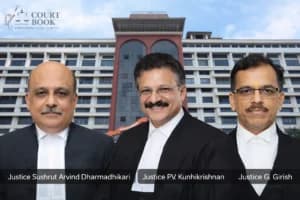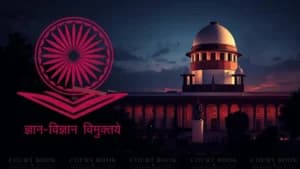The Madurai Bench of the Madras High Court has acquitted two men—one the father of the victim and the other a local priest—of charges under the Protection of Children from Sexual Offences (POCSO) Act, citing the prosecution's failure to legally establish the age of the alleged minor. However, both were found guilty under relevant provisions of the Indian Penal Code (IPC).
The bench comprising Justice A.D. Jagadish Chandira and Justice K. Rajasekar passed the verdict on April 28, 2025, allowing the appeals filed by Gunasekaran (Accused No. 1, the father) and Sivakumar (Accused No. 2, the priest) against their conviction by the Fast Track Mahila Court, Ramanathapuram. The trial court had earlier convicted them under Sections 6 and 8 of the POCSO Act and imposed significant prison terms and fines.
The High Court, however, noted that the victim’s age, which was central to sustaining charges under the POCSO Act, had not been proved as per law. The school-issued certificate relied on by the prosecution was not in the form of a public or official record as required under Section 35 of the Indian Evidence Act.
“This Ex.P.7 certificate was issued by her, based on the requisition made by the Investigating Officer and entries in this certificate is not in the nature of any public or official register. Hence, this certificate is not fulfil the requisites of Section 35 of the Indian Evidence Act, and also it is not a birth certificate issued by the School,” the Court observed.
Due to the lack of reliable evidence to prove the age of the victim in accordance with Section 94(2) of the Juvenile Justice Act, the Court held that the POCSO Act provisions could not be attracted. The case was thus examined through the lens of the IPC.
According to the prosecution, Gunasekaran had molested his daughter during 2018 and again in 2020 when he returned from abroad. The child initially remained silent, fearing consequences. Observing changes in her behaviour, her mother and relatives sought medical advice, but later attributed her condition to evil spirits and brought her to a local priest, Sivakumar, for rituals.
While performing these rituals, the priest allegedly administered a suspicious substance to the girl, and during the night, committed repeated penetrative sexual assault. The following day, the girl remained silent out of fear and shame. However, on October 30, 2021, after another abusive episode by her father, she attempted suicide by ingesting insecticide. She later contacted a child helpline and, with assistance, lodged a police complaint.
The defence claimed there was a miscarriage of justice due to a misjoinder of charges, arguing that the offences occurred at different times and places and involved different degrees of severity. They also cited delays in filing the complaint and alleged an illicit relationship between the victim’s mother and a prosecution witness as a possible motive for false allegations.
The public prosecutor, however, countered that all acts were part of the same transaction and that Section 223 of the CrPC allows for joint trials under such circumstances. The prosecution argued that the delay in filing the complaint was a result of the trauma and fear experienced by the victim and her mother.
The Court found no merit in the defence’s misjoinder argument. It cited Section 464 of the CrPC, which states that an omission or error in framing charges cannot be grounds for setting aside a conviction unless it results in a failure of justice.
“Unless there is a failure of justice, any omission to frame or absence of any error in charge including misjoinder of charges shall not be a ground to invalidate the findings or sentence or order of the competent court,” the bench observed.
The Court also upheld the credibility of the victim’s testimony, stating that she had clearly described the acts committed by both accused. However, due to the failure to prove the victim's age as a minor, the Court could not sustain the convictions under the POCSO Act.
Read Also:-Madras High Court Imposes Interim Stay on NEET UG 2025 Results Over Re-Examination Plea
Invoking Section 222(1) of the CrPC, the Court modified the convictions. Gunasekaran was convicted under Sections 354 and 506(i) of IPC, and Sivakumar under Section 376(1) IPC. The sentences were ordered to run concurrently, and the period already undergone by the accused was to be set off as per Section 428 of CrPC.
We find that the charges under POCSO Act are not proved beyond reasonable doubt due to lack of legal proof of age. However, sufficient evidence is available to hold the accused guilty under appropriate sections of IPC, the Court concluded.
Counsel for Petitioner: Mr. R. Anand, Mr. G. Karuppasamy Pandian
Counsel for Respondents: Mr. A. Thiruvadi Kumar (Additional Public Prosecutor)
Case Title: Sivakumar v. State
Case No: Crl.A.(MD). Nos. 370 and 445 of 2022















